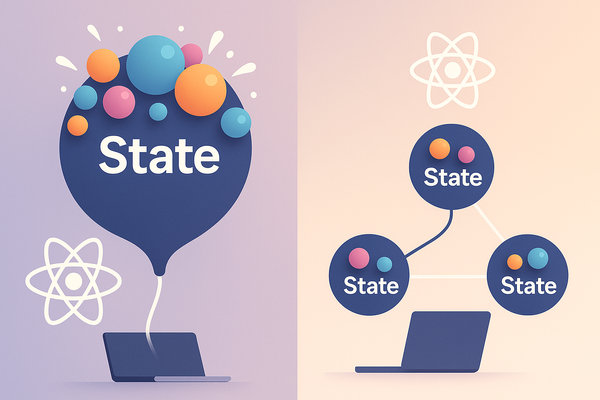How to Approach Code Optimization Questions in Interviews: A Frontend Engineer's Guide
Recently, during an interview, I was asked a question that caught me off guard: "How would you improve this code?" I had experience optimizing code in projects—creating reusable components, improving load times, and enhancing data fetching—but I found myself unable to formulate a clear response in that moment.
This experience made me realize how common it is to get stuck when faced with open-ended questions about code improvement during interviews. In this article, I’ll walk through strategies to approach such questions, how to assess code for improvements, and how to confidently respond during interviews.
Asking the Right Questions
Before jumping into optimizations, it’s important to understand the context and goals of the code you're asked to improve. If the interviewer provides you with a piece of code or a scenario and asks for improvements, try to clarify the following:
What specific aspects do you want to improve in the code?
This can help narrow your focus. For example, is the goal to improve performance, readability, scalability, or something else?
Is there a particular outcome or metric you're aiming to optimize?
Understanding whether they’re looking for improvements in user experience, reduced load times, or better error handling can guide your thought process.
These clarifying questions show initiative and can help you understand the interviewer's expectations better. They also allow you to approach the problem with a structured mindset.
Assessing the Code for Optimization
Once you have the context, you can start assessing the code. Here are key areas to focus on:
1. Readability and Maintainability
Variable and Function Names: Are the names descriptive and easy to understand? Clear and concise naming improves code readability, making it easier for other developers to understand.
Code Structure: Does the code follow a logical and consistent structure? Well-organized code is easier to maintain and extend in the future.
2. Best Practices
Modern JavaScript: Does the code make use of modern ES6+ features? For example, using const and let instead of var, utilizing arrow functions, destructuring, and template literals can make the code more concise and efficient.
Error Handling: Is there proper error handling in place? Using try-catch blocks and meaningful error messages can improve the user experience by providing useful feedback during failures.
3. Performance Optimization
Reusable Components/Custom Hooks: In React or similar frameworks, are there opportunities to refactor code into reusable components or custom hooks? This reduces redundancy and makes the code more modular and maintainable.
Image Optimization: Can images be lazy-loaded to improve performance? Serving different images based on screen size (responsive images) can also boost load times on various devices.
Data Fetching: Does the code handle data fetching efficiently? Utilizing caching mechanisms, handling errors gracefully, and ensuring proper loading states can enhance both performance and user experience.
Example: Improving Code to Show Data from an Array of Objects
Let's take a simple example of bad code that displays data from an array of objects and see how we can improve it. Suppose we have an array of objects containing user data, and we want to display the user's name and age.
Bad Code Example
let users = [
{ name: 'Alice', age: 25 },
{ name: 'Bob', age: 30 },
{ name: 'Charlie', age: 35 }
];
// Loop through users and log to console
for (var i = 0; i < users.length; i++) {
console.log('User Name: ' + users[i].name + ', Age: ' + users[i].age);
}
Problems with the Bad Code:
- Use of
var:varis outdated and can cause scope issues in larger applications. - String Concatenation: String concatenation (
'User Name: ' + ...) is less readable and more error-prone than using template literals. - No Separation of Concerns: The logic to display data is directly mixed with the data itself, making it harder to scale or modify.
- No Reusability: If we need to display user data in multiple places, we would have to repeat this logic.
Improved Code Example
const users = [
{ name: 'Alice', age: 25 },
{ name: 'Bob', age: 30 },
{ name: 'Charlie', age: 35 }
];
// Function to display user info
const displayUserInfo = (user) => {
console.log(`User Name: ${user.name}, Age: ${user.age}`);
};
// Iterate using forEach, improving readability
users.forEach(displayUserInfo);
Improvements:
- Use of
const: Replacesvarwithconstsince theusersarray does not need to be reassigned, improving scope management. - Template Literals: Use of template literals (
`User Name: ${user.name}`) makes the string interpolation cleaner and more readable. - Reusable Function: The
displayUserInfofunction separates the concern of how the user data is displayed, making the code more modular and reusable. - Modern Iteration Method: Using
forEachis cleaner and more intuitive for iterating over arrays than a traditionalforloop, improving code readability.
Structuring Your Response During the Interview
If you're asked to improve code in an interview, here's a clear and professional way to structure your response:
Understand the Context
Start by asking the clarifying questions mentioned earlier. This shows that you’re thoughtful and not just rushing to fix things without understanding the underlying needs.
Highlight the Key Areas for Improvement
Once you understand the requirements, start by identifying the areas where you believe improvements can be made. For example:
- “I would focus on improving the readability of this code by renaming variables to be more descriptive.”
- “I’d also suggest using modern JavaScript features, such as destructuring, to make the code more concise.”
Explain the Benefits
Explain why your suggestions are important:
- “Improving variable names will make the code easier for other developers to understand, which enhances collaboration.”
- “Implementing lazy loading for images will significantly reduce initial load times, improving the user experience.”
Demonstrate Your Knowledge of Best Practices
Reference best practices you’ve implemented in past projects:
- “In my previous projects, I’ve used custom hooks to avoid duplication of logic across components, which can help in this case as well.”
- “I’ve also optimized data fetching with proper error handling and caching to ensure users have a seamless experience.”
Final Thoughts
When faced with a question about improving code, it's essential to break it down methodically. By asking clarifying questions, assessing the code based on readability, best practices, and performance, and then structuring your response clearly, you’ll not only demonstrate your technical knowledge but also show your ability to think critically.
Don’t hesitate to ask for feedback at the end of the interview. Questions like, “Is there any specific area of my response you’d like me to expand on?” or “Would you like me to dive deeper into any specific aspect?” can help you gauge if you’re meeting their expectations.
By maintaining this structured approach, you'll be able to tackle code optimization questions with confidence in future interviews.


